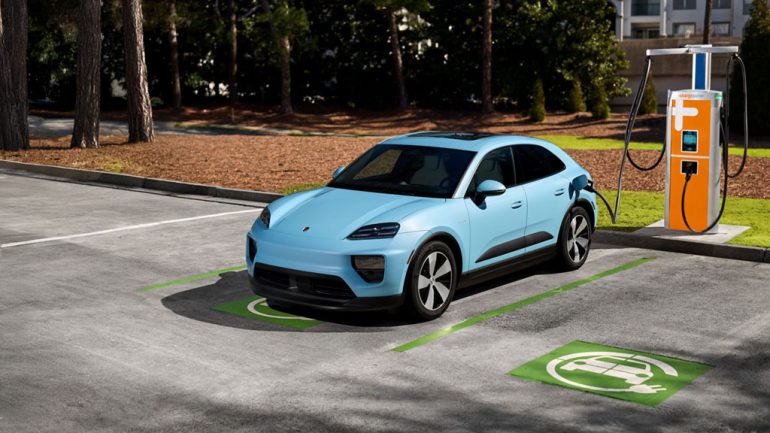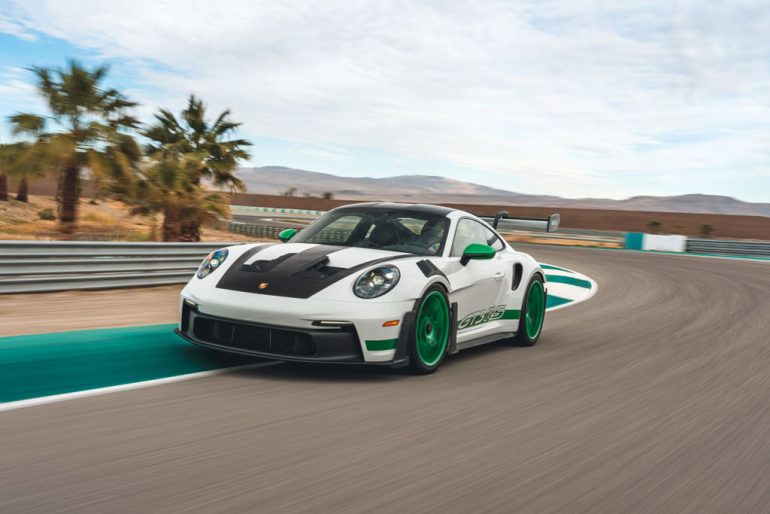Automotive

Porsche, long regarded as one of the most resilient brands in the luxury performance segment, is facing a sobering reality: even Stuttgart’s finest isn’t immune to the mounting pressures shaking the global auto industry. According to internal communications reported by Automotive News, Porsche CEO Oliver Blume has made it clear that the economic headwinds — including U.S. tariffs, soft EV demand, and weakening sales in China — are hitting the brand harder than many of its competitors.
In a candid message to employees, Blume didn’t mince words: “All of this is hitting us hard — harder than many other car manufacturers. Our business model, which has served us well for many decades, no longer works in its current form.” It’s a rare moment of vulnerability from a company that’s typically known for tight margins, high desirability, and bulletproof branding.

While Porsche isn’t the only automaker feeling the sting of Trump-era auto tariffs, its exposure is uniquely acute. Unlike competitors with U.S. production plants, Porsche builds its entire lineup abroad. That means every model sold in America — from the entry-level 718 Cayman to the $210,000 Cayenne Turbo GT — is now more expensive to bring in. To absorb these costs, Porsche has already confirmed another MSRP increase across its U.S. range — the second this year. This could be a tough sell, especially as the 718 Cayman inches closer to the $73,000 mark, placing it well above what many buyers expect for an “entry-level” sports car.
The challenge doesn’t end with tariffs. EV demand, particularly for the Taycan and the upcoming electric Macan, has cooled considerably. Despite Porsche logging record global sales in 2024, momentum is slowing. According to Porsche’s Q2 report, Taycan sales are up just 1.4% year-to-date — the lowest growth figure in the lineup. Contrast that with the 75% jump in 718 Cayman and Boxster sales, and the picture becomes clear: buyers may be snapping up internal combustion models before they’re gone, but they’re not rushing to embrace Porsche’s electric future just yet.

China, Porsche’s second-largest market, is also proving difficult. There, the Taycan has struggled to gain traction against a flood of new high-end EVs from local brands like Zeekr and Nio, which offer impressive performance and high-tech features at competitive prices. With consumer sentiment shifting quickly, Porsche’s premium EVs are finding themselves outpaced in a key segment they helped define.
Behind the scenes, cost-cutting is already underway. Porsche is targeting an ambitious operating margin of 15% to 17%, a big leap from the 8.6% it posted in Q1. To get there, it’s likely the company will double down on its previously announced workforce reductions — nearly 3,900 jobs are expected to be cut by 2029 — and may take cues from Volkswagen’s broader cost-saving strategies. VW, Porsche’s parent company, is reportedly planning to eliminate 35,000 positions in Germany as part of its own margin push.
There’s also speculation that Porsche may shelve or delay some upcoming tech projects, including a more efficient six-stroke engine. More pressing still is the timeline for the all-electric 718 Cayman and Boxster, which has already been pushed to 2027. With EV adoption still finding its footing — especially in high-end segments — even Porsche’s typically aggressive innovation schedule may be taking a pause.

Porsche isn’t alone in this climate. General Motors recently reported a staggering 35% drop in net income, equating to a $1.1 billion loss directly tied to the same trade tensions impacting Porsche. That makes it clear this isn’t just a brand-specific issue, but rather a broader reckoning for the global auto industry.
Still, the question looms: how will Porsche adapt? Will raising prices alienate buyers? Can they get EV buyers back in showrooms without compromising the essence of the brand? One thing’s for sure — Porsche’s next chapter will look very different from the last. And this time, even the best badge in the business can’t afford to ignore the shifting road ahead.
Source: Automotive News
FOLLOW US TODAY:

Mike Floyd is a finance executive by trade and a car enthusiast at heart. As a CFO with a keen eye for detail and strategy, Mike brings his analytical mindset to the automotive world, uncovering fresh insights and unique perspectives that go beyond the surface. His passion for cars—especially his favorite, the Porsche 911, fuels his contributions to Automotive Addicts, where he blends a love for performance and design with his professional precision. Whether he’s breaking down industry trends or spotlighting emerging innovations, Mike helps keep the site both sharp and forward-thinking.


